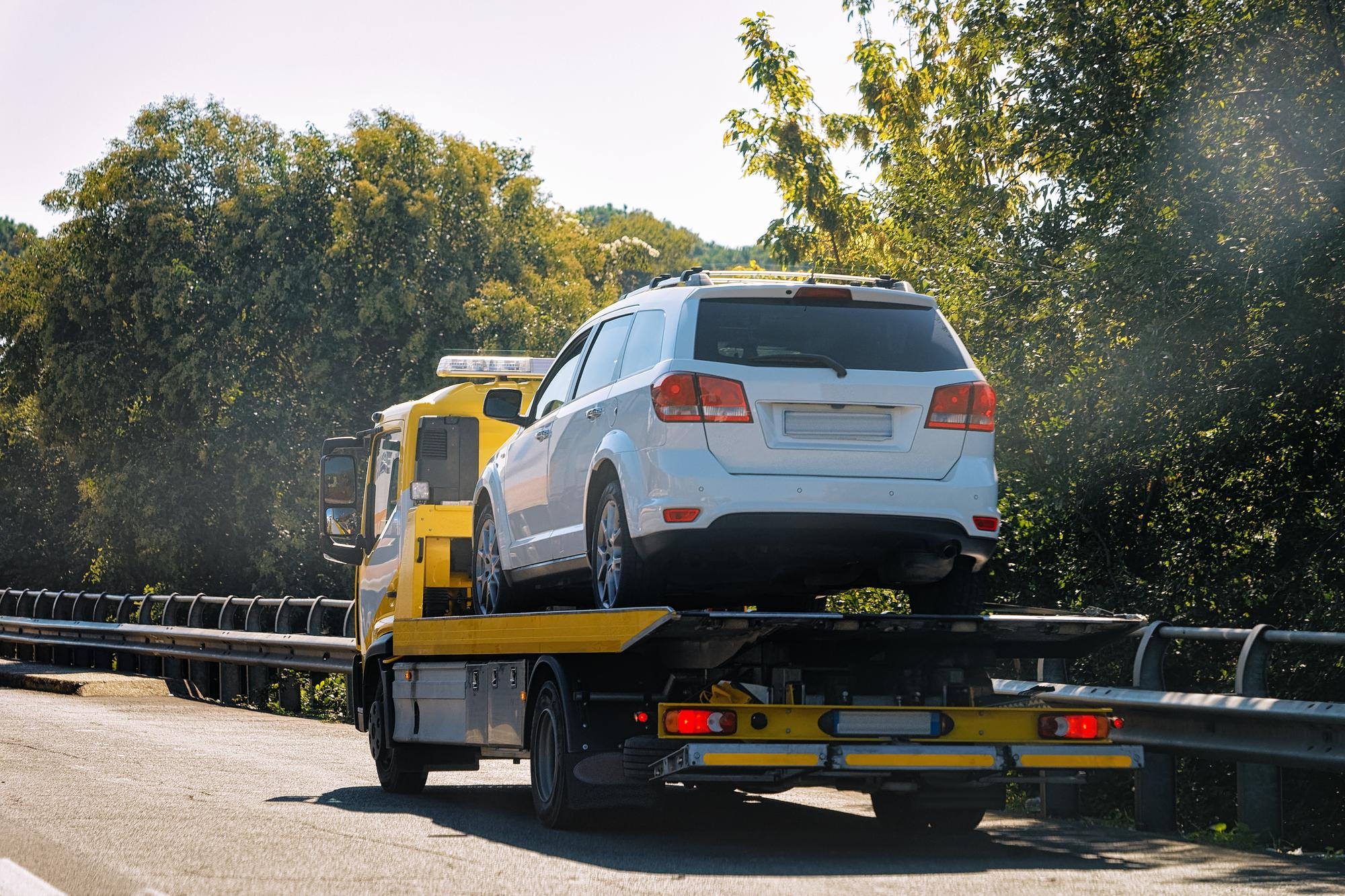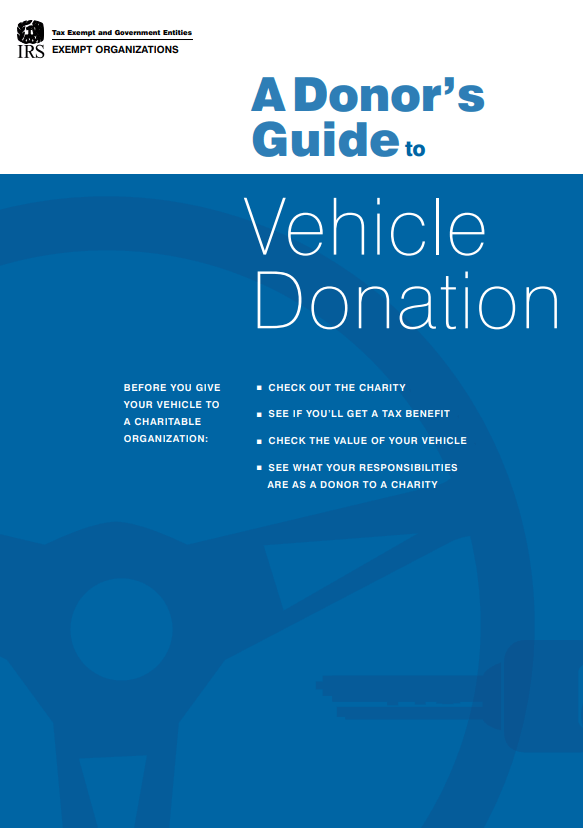Donating or Junking a Car: Which Option Suits You Best? (PDF)
Do you find yourself with an old vehicle that’s no longer serving its purpose? Whether your car still runs or has reached the end of its road, you may be contemplating whether to free up space by disposing of it. But the question arises: “Should I choose junking my car, or donating it?” In this guide, we’ll explore the ins and outs of both options to help you decide which one aligns better with your preferences and circumstances.

The Prevalence of Donated Cars as Junk Cars
Charitable organizations accept all types of vehicles, but a significant portion of the donated vehicles are, in fact, considered junk cars. Typically, individuals choose to sell their functioning vehicles for financial gain, often to fund their next car purchase. However, those who own non-operational vehicles are more inclined to consider donating them.
When a donated car reaches its chosen charity, the organization usually dismantles it or auctions it under their name. Other drivable donated cars may be sold at below-market prices or used for the charity’s daily operations, such as deliveries or volunteer transportation.
Junking vs. Donating a Car: A Quick Comparison
Junking and donating cars are the two primary methods for parting ways with your old vehicle. What sets these methods apart, and how do they impact your finances?
Similarities
- Both junking and donating a car achieve the common goal of eliminating your unwanted vehicle, freeing up space for a potential replacement.
- They provide avenues for positively influencing your financial situation.
- Both options cater to non-functioning vehicles, with charities and junkyards often offering free pickup services.
- The fate of non-operational cars in both scenarios usually involves stripping them for parts and recycling the scrap metal.
Differences
- Donating a car allows you to claim a tax deduction while junking a car provides you with a cash payout.
- Donations involve not-for-profit organizations, whereas junk car transactions occur with profit-driven entities. Donating a vehicle doesn’t necessarily mean it has to be non-operational; functioning cars can also be donated.
More About Donating a Car
If you’ve decided to donate your car, you’re making a commendable choice. Donating your car not only helps those in need but also offers the benefit of a tax deduction for you. However, there are essential steps to follow:
Where Can You Donate Your Car?
- Ensure that you’re dealing with a legitimate charity with 501(c)(3) tax-exempt status. You can verify this status using the IRS tax-exempt organization search portal or by asking the charity directly for proof.
- Avoid for-profit intermediaries that may take a significant portion of your car’s value and hinder the validity of your tax deduction.
How Can You Donate a Car?
- Find a nonprofit charity that directly accepts car donations and has a cause you support.
- Verify their 501(c)(3) status.
- Properly sign over your car’s ownership to the charity.
- Complete any required IRS paperwork, especially if the car’s value exceeds $250, $500, or $5,000.
Preparing to Donate Your Junk Car When Selling
If you plan to donate your junk car when selling, gather all necessary documents, including the title, registration, and bill of sale. Research local charities that accept car donations and assess your car’s value to decide between selling or donating it.
What Will Happen to My Car After Donation?
When you donate a car, it’s typically sold as quickly as possible by the charity. Depending on its condition, the vehicle may find a new owner or end up in an auto salvage yard, where it will be dismantled for parts and recycled.
Is It Worth Donating a Car?
Donating a car can be worth it for many, as it allows for a tax deduction equal to the car’s selling price at auction. However, the process can involve complex paperwork and may not provide an immediate cash benefit.
Downsides of Donating a Car
While donating a car is a noble choice, it does come with some drawbacks. The paperwork can be cumbersome, and the primary financial benefit is the tax deduction. For some, this may be less appealing than selling the car to a for-profit company that offers upfront cash.
Most Car Donation Organizations Are Middlemen
Many donated cars pass through for-profit intermediaries before reaching charities, which can reduce the proceeds directed to charitable causes. It’s crucial to research and choose efficient charity organizations to maximize benefits and minimize risks.
Only Junk Car Donations to Qualified Charities Can Provide a Tax Deduction
To qualify for a tax deduction, you must donate your car to a tax-exempt organization with 501(c)(3) status. Donors should verify the charity’s eligibility to ensure their donation is tax-deductible.
Getting the Maximum Tax Deduction for a Donated Junk Car Is Rare
Receiving the maximum tax deduction for a donated junk car can be challenging, as it depends on factors such as the car’s condition and the charity’s use of it. Most donated vehicles are not roadworthy, making it difficult to achieve the maximum tax benefit.
More About Junking a Car
While donating a car can be fulfilling, junking a car offers an immediate cash payout. You can junk any car, regardless of its condition, selling it as a whole or for parts.
Where Can You Junk Your Car?
Numerous options exist for junking your car, from individual junkyards to online private sales. Some national junk car buyers may offer better deals due to their wider reach.
What Happens When You Junk Your Car?
Typically, when you junk your car, it undergoes a similar fate as when it’s donated. It is often dismantled for parts, and its metal is recycled back into the automobile industry.
Is It Worth Junking Your Car?
For many people, junking a car is worthwhile, especially when dealing with older or high-mileage vehicles. However, the value of the car may be lower in such cases due to the condition of its parts.
Donating or Junking: Expired Registration
If your car has an expired registration, it’s generally better to junk it, as donating it may not yield significant benefits. Donating an inoperable car can result in the charity having to junk it eventually while junking it directly ensures some financial return.
My Car Has No Title. What Should Do?
In cases where you lack the title, it’s preferable to junk your car rather than donate it, as many charities require the title for donation. Selling your junk car without a title allows you to recoup some money.
Key Points
Deciding between junking and donating a car ultimately depends on your priorities and financial situation. If you require immediate cash, junking your car may be the better option. However, if you’re willing to wait for a tax write-off and prioritize charitable giving, donating may be more suitable for you. Regardless of your choice, ensure you make informed decisions that align with your goals and values.

